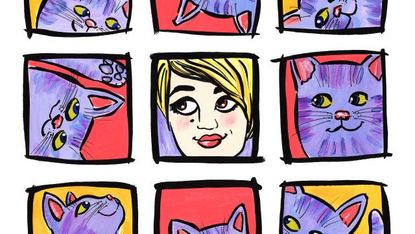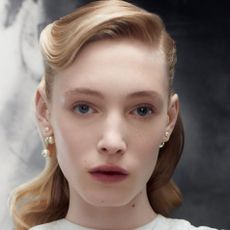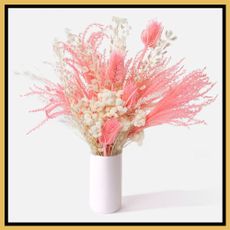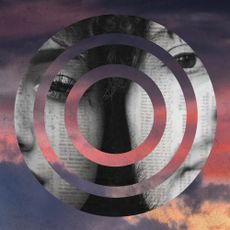
We cling to things that make us feel good. Like, if you love cats (and why are you reading this if you don't?), sometimes you'll see a cat minding its business, sitting in a too-small box, and it fills you with this intense urge to hug it. Cats almost uniformly hate being hugged, and this makes hugging them all the more enticing as they stupidly try to push you away with their ineffectual little fur-tube legs. Hug all you want; you will never be able to hold their cat essence within you. Everything is like that. Satisfaction and joy and everything are by nature temporary, and we know this, but we try to lock that shit down anyway.
I know a bit about locking things down because I got married three years ago. I know even more about the transient nature of contentment because I got divorced two years ago. I was one of the first of my friends to get married, and now I'm one of the last remaining women I know from the group who are unmarried and childless.
It's remarkable how fast it happens. Like a disease, really. You think you know someone, you think you can rely on people to be the versions of themselves you create in your head when you are all 25, and then someone shows up with a fucking diamond on their finger and the whole neighborhood starts changing. I guess I thought that by being the first to take that particular plunge, I was somehow protecting myself from the horrifying progression of life that everyone confronts at some point, except Julianne Moore who is either 30 or 60 or an alien.
On the day we married, my ex and I had no way of knowing that the seeds of resentment and doubt we were planting would grow into a jungle of dysfunction, despite our valiant efforts, in a matter of months after the wedding. We had no way to see that the very reason we were marrying — a search for perfection, for outer success and inner peace all wrapped up in a very expensive Palm Springs ceremony — would be the thing to undo us. We loved each other, and we thought we were doing the right thing. Instead, we failed at the very first benchmark of adulthood, just as everyone around us was succeeding heartily.
By the time the divorce papers were signed, my last single bridesmaid was engaged and the other three were married with kids on the way. That year, the holidays had taken a toll, and being the fiery free spirit with a new much-younger boyfriend amid a sea of nesting couples now felt pathetic and empty. I started going out a lot and drinking more, smoking more weed than I ever had. I went to a karaoke bar alone and handed the DJ $20, saying, "I'm going through something," as if that were a hilarious bit people do, not just nauseatingly sad and narcissistic (in any case, $20 is definitely not enough dough to accompany such a vague announcement).
Around that time, my new relationship with the guy who was eight years my junior, once so refreshing and liberating, was moving toward its inevitable end, and I was clinging to it with an inappropriate fervor that made me feel creepier and older than ever. What scared me the most was that for the very first time in my life, doing stand-up didn't feel like the refuge I was accustomed to. I was having trouble making light of my pain, or making light of anything at all. I needed something — anything — to distract myself from my shitty self-image.
I was having trouble making light of my pain, or making light of anything at all. I needed something — anything — to distract myself from my shitty self-image.
Volunteering at the cat shelter near my home seemed like a very low-stakes way to keep busy, and I love cats and am good at dealing with them (except when I make them hug me). Besides, my cats make me happy, so I figured more cats could help take the edge off my mood.
Stay In The Know
Marie Claire email subscribers get intel on fashion and beauty trends, hot-off-the-press celebrity news, and more. Sign up here.
Two things about volunteering that scare people are: (1) the overwhelming need and the inability to meet it no matter how much you try and (2) other volunteers. Volunteering draws people who have time on their hands, and a cat shelter draws people who are willing to get cat shit on their hands. Some people like to work with animals because they really can't handle interaction with other humans. I respect this worldview — to a point. Humans are racist and wear bucket hats and say things like "TMI!" But there's a line between preferring the company of animals and being unable to answer the question of who's cleaned the goddamn community litter boxes today because you're busy kissing a dog's face. I know you may be picturing a woman in the aforementioned anecdote. Don't.
Human weirdos aside, the real challenge was the feline weirdos. My cats are dream creatures. If ever a cat-shy visitor flinches as though one of my feline sons could bite, my cat looks to me as if to ask, "Why would I bite person hand? Person hand is where pets are from." In the shelter, many cats think person hands are where certain death comes from. And some think this, unfortunately, for good reason. As a shelter volunteer, it's important to foster trust and gently coax these animals out of their fear so that someone will take them home. The shelter triage system works to get sweet, docile cats placed first, since they have the lowest return rate. The more difficult ones are the heartbreakers.
On my third week at the shelter I encountered Amelia. Amelia is a middle-aged tabby, svelte and graceful, and on this particular day she was standing on a table growling and hissing and swatting for hours at nothing in particular. I didn't know what her problem was, and there was literal shit to deal with, so I ignored her. After a while I noticed something, though. As I walked by, she would calm down for just a moment. So I tried walking straight up to her, standing still at the edge of her table. She didn't relax completely, but she didn't attack me either. So at least people weren't the problem, I thought. Soon, another cat approached, and she went berserk. I grabbed a large blanket and held it in front of her and around the sides of the table, creating a cubicle. She growled a little, sat down, and closed her eyes. I realized she was a cat that needed lots of space from other cats. I don't know why she needs it, but she has her own little cat reasons for it. She has a story, and it's just as real and full as anyone else's story.
Amelia is sort of brilliant, but troubled. She can open her cage door and has figured out how to open cans as well. She loves to play and be engaged, and she now lets people pet her. I'm careful with her, because her aggressiveness is unpredictable, but I often fantasize about adopting her even though she would never live comfortably with other cats. I call her "a beautiful mind" because she's just as smart as Russell Crowe.
The piece of shit at the center of the universe is a phrase used in psychotherapy vernacular to describe the feeling of self-loathing and depression that becomes so all-consuming that you actually begin to inflate your own importance. This misperception is a sickness, and the cure is to invest in others. Not to prove to yourself that you are good because you can do things for people, but because shifting focus to something outside yourself teaches you that you're not the only one around with a story to tell. You're not the only piece-of-shit creature who needs things, who longs for love and comfort and satisfaction.
You're not the only piece-of-shit creature who needs things, who longs for love and comfort and satisfaction.
Amelia helped me turn my unavailing despair into something useful: a desire to help someone else feel less despair. It helped that I could relate to Amelia. In many ways, she was just like me: intelligent but increasingly angry, not fitting in with the rest of the world, wondering what else is in the cabinet where the wet-food cans are kept. I might as well be describing myself.
I still volunteer when my schedule allows, and as of now Amelia is still there to greet me when I arrive. The morning shift at the shelter is where all the action is. We have to feed all the little mouths, and dispense meds, and then clean and clean and clean. You're so busy sometimes you don't get a chance to stop and hold a bunny (there are also bunnies) or pretend to put a kitten's head in your mouth (seasoned volunteers only). But that's not what I'm there for. Sweeping up a mess, walking a dog, and clearing out a cage of its chaotic mixture of torn paper and litter dust so an occupant can tear it up again are small acts that make things better, more stable. My life might not be a picture of perfection, but nothing is if you really look at it. Perfection to me is an infinite reserve of compassion for all beings, and cultivating that is much less glamorous than you'd think. If I'm not the piece of shit at the center of the universe, it's because I'm lucky enough to focus on the piece of shit at the center of this cat box.
Alice Wetterlund is a comedian and actor living in Los Angeles.
-
 Zendaya's Method Dressing Marathon Is Over
Zendaya's Method Dressing Marathon Is OverShe found a new way to serve in custom Vera Wang.
By Halie LeSavage Published
-
 Bitten Lips Took Center Stage at Dior Fall 2024 Show
Bitten Lips Took Center Stage at Dior Fall 2024 ShowModels at the Dior Fall 2024 show paired bitten lips with bare skin, a beauty trend that will take precedence this season.
By Deena Campbell Published
-
 30 Spring Items That Solve My Expensive-Taste-on-a-Humble-Budget Dilemma
30 Spring Items That Solve My Expensive-Taste-on-a-Humble-Budget DilemmaSee every under-$300 spring item on my wish list.
By Natalie Gray Herder Published
-
 30 Female-Friendly Porn Websites for Any Mood
30 Female-Friendly Porn Websites for Any MoodAll the best websites, right this way.
By Kayleigh Roberts Published
-
 The 82 Best Cheap Date Ideas for Couples on a Budget
The 82 Best Cheap Date Ideas for Couples on a Budget"Love don't cost a thing." —J.Lo
By The Editors Last updated
-
 Diary of a Non-Monogamist
Diary of a Non-MonogamistRachel Krantz, author of the new book 'Open,' shares the ups and downs of her journey into the world of open relationships.
By Abigail Pesta Published
-
 COVID Forced My Polyamorous Marriage to Become Monogamous
COVID Forced My Polyamorous Marriage to Become MonogamousFor Melanie LaForce, pandemic-induced social distancing guidelines meant she could no longer see men outside of her marriage. But monogamy didn't just change her relationship with her husband—it changed her relationship with herself.
By Melanie LaForce Published
-
 COVID Uncoupling
COVID UncouplingHow the pandemic has mutated our most personal disunions.
By Gretchen Voss Published
-
 16 At-Home Date Ideas When You're Stuck Indoors
16 At-Home Date Ideas When You're Stuck IndoorsStaying in doesn't have to be boring.
By Katherine J. Igoe Published
-
 Long Distance Relationship Gift Ideas for Couples Who've Made It This Far
Long Distance Relationship Gift Ideas for Couples Who've Made It This FarAlexa, play "A Thousand Miles."
By Jaimie Potters Published
-
 15 Couples on How 2020 Rocked Their Relationship
15 Couples on How 2020 Rocked Their RelationshipCouples confessed to Marie Claire how this year's many multi-stressors tested the limits of their love.
By Sherry Amatenstein, LCSW Published